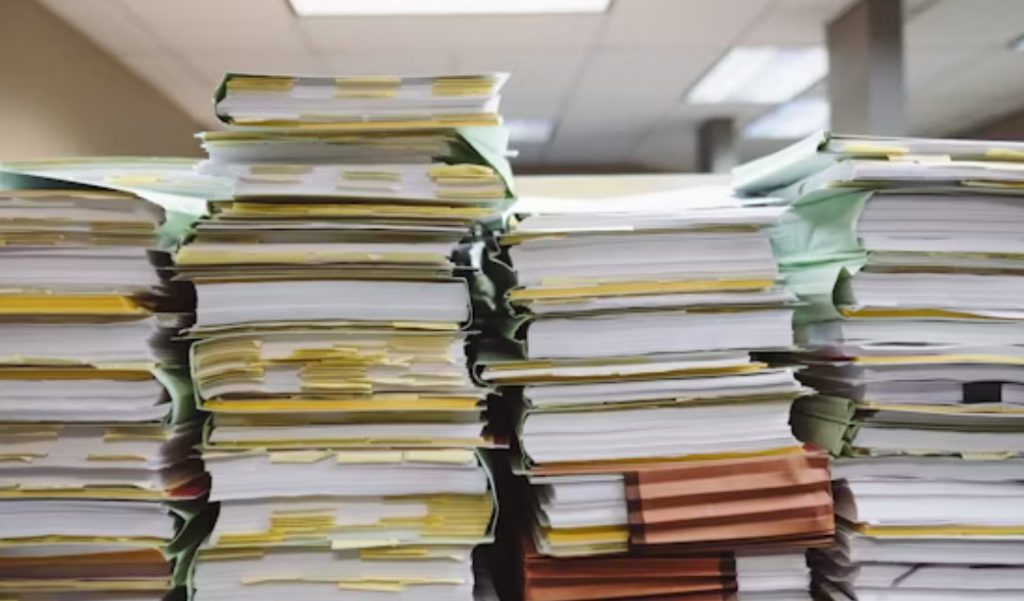While we often focus on cybersecurity measures, the risk of data breaches through physical means cannot be overlooked. Improper disposal of paper documents and physical media can lead to devastating consequences, including identity theft, financial loss, and legal repercussions.
Sensitive information, such as financial records, medical histories, and personal identification data, must be handled with utmost care. Failing to securely dispose of these materials can expose your organization to significant risks, tarnishing your reputation and eroding customer trust.
Moreover, regulatory bodies have implemented stringent laws and guidelines governing the proper handling and disposal of confidential information. Non-compliance can result in hefty fines, legal battles, and irreparable damage to your brand.
- Risks of Improper Disposal
- HRIS Integration for Secure Document Management
- Mobile Device Management for Secure Disposal of Physical Media
- Best Practices for Securely Disposing of Paper Documents
- Best Practices for Securely Disposing of Physical Media
- Tools And Services for Secure Document and Media Disposal
- Conclusion
Risks of Improper Disposal
The consequences of improper disposal of paper documents and physical media are far-reaching and can have severe implications for your organization. Here are some of the major risks:
Identity Theft: Discarded documents containing personal information, such as names, addresses, and Social Security numbers, can be exploited by malicious individuals for identity theft and fraud.
Financial Loss: Sensitive financial data, including bank account details and credit card information, can be misused for unauthorized transactions, leading to significant financial losses.
Regulatory Fines and Legal Consequences: Failure to comply with data protection regulations, such as the Health Insurance Portability and Accountability Act (HIPAA) or the General Data Protection Regulation (GDPR), can result in substantial fines and legal actions against your organization.
Reputational Damage: A data breach or mishandling of sensitive information can severely damage your organization’s reputation, leading to loss of customer trust and potential business opportunities.
Competitive Disadvantage: Confidential business information, trade secrets, and intellectual property falling into the wrong hands can give your competitors an unfair advantage, undermining your market position.
HRIS Integration for Secure Document Management
Integrating your Human Resources Information System (HRIS) with a secure document management solution can streamline the process of handling and disposing of sensitive employee records. By leveraging HRIS integration, you can:
Centralize Document Storage: Store all employee-related documents, such as employment contracts, performance reviews, and payroll information, in a secure, centralized repository.
Automate Retention Policies: Define retention policies based on legal requirements and organizational needs, ensuring that documents are automatically purged or archived after their designated retention period.
Enable Role-Based Access Control: Implement granular access controls to restrict access to sensitive information based on user roles and responsibilities, minimizing the risk of unauthorized access.
Maintain Audit Trails: Comprehensive audit trails track document access, modifications, and disposal activities, providing accountability and ensuring compliance with regulatory requirements.
Facilitate Secure Disposal: Integrate with secure document disposal services, enabling you to schedule regular pickups or on-demand secure shredding of physical documents.
Mobile Device Management for Secure Disposal of Physical Media
In today’s mobile workforce, sensitive data is often stored on various physical media, such as laptops, smartphones, and external hard drives. Proper disposal of these devices is crucial to prevent data breaches and protect your organization’s confidential information. Benefiting from Mobile Device Management (MDM) solutions can be a great help in ensuring the secure disposal of physical media through the following:
Remote Data Wiping: MDM solutions allow you to remotely wipe data from lost or stolen devices, ensuring that sensitive information does not fall into the wrong hands.
Encryption and Data Protection: Enforce encryption policies and data protection measures on mobile devices, making it more difficult for unauthorized individuals to access sensitive information.
Device Tracking and Locating: Track the location of lost or misplaced devices, enabling you to take appropriate action, such as remote wiping or physically retrieving the device.
Device Decommissioning: Streamline the process of decommissioning and securely disposing of retired or end-of-life devices, ensuring that all data is securely erased or destroyed.
Compliance Reporting: Generate detailed reports on device inventory, data wiping activities, and compliance status, facilitating audits and demonstrating adherence to regulatory requirements.
Best Practices for Securely Disposing of Paper Documents
Ensuring the secure disposal of paper documents is crucial for protecting sensitive information and maintaining compliance with data protection regulations. Here are some best practices to follow:
Implement a Shredding Policy: Develop and enforce a document shredding policy that outlines procedures for identifying and securely disposing of confidential documents.
Use Cross-Cut Shredders: Invest in high-quality cross-cut shredders that cut documents into small, unreadable pieces, making it nearly impossible to reconstruct the information.
Conduct Regular Shredding: Schedule regular shredding sessions to prevent the accumulation of sensitive documents and minimize the risk of accidental disclosure.
Employ Secure Bins: Utilize secure, locked bins for collecting confidential documents until they can be shredded, preventing unauthorized access or tampering.
Train Employees: Provide comprehensive training to employees on identifying sensitive documents, handling procedures, and the importance of secure document disposal.
Monitor and Audit: Regularly monitor and audit the document disposal process to ensure compliance with policies and identify areas for improvement.
Partner with Professional Shredding Services: Consider partnering with reputable professional shredding services that offer secure on-site or off-site document destruction, ensuring proper handling and disposal of sensitive materials.
Best Practices for Securely Disposing of Physical Media
In addition to paper documents, physical media such as hard drives, USB drives, and tapes can also store sensitive information. Proper disposal of these media is essential to prevent data breaches and protect your organization’s confidential information. Here are some best practices to follow:
Data Sanitization: Implement a data sanitization process that securely erases or destroys data on physical media before disposal. This can include using specialized software for data wiping or physically destroying the media through degaussing or shredding.
Media Inventory Management: Maintain an accurate inventory of all physical media, including their location, contents, and disposal status, to ensure proper tracking and accountability.
Secure Storage: Store physical media containing sensitive information in a secure, access-controlled area until they can be properly disposed of or sanitized.
Chain of Custody: Establish a documented chain of custody for physical media, ensuring that all handling and disposal activities are recorded and auditable.
Destruction Certification: For highly sensitive media, consider using a certified destruction service that provides documentation and certification of secure destruction.
Employee Training: Provide comprehensive training to employees on the proper handling, storage, and disposal of physical media to ensure adherence to policies and procedures.
Regular Audits: Conduct regular audits of your physical media disposal process to identify and address any potential vulnerabilities or areas for improvement.
Tools And Services for Secure Document and Media Disposal
To effectively implement secure disposal practices, consider leveraging the following tools and services:
Shredding Equipment: Invest in high-quality shredders, such as cross-cut or micro-cut shredders, to ensure the complete destruction of paper documents.
Data Sanitization Software: Utilize specialized software solutions that securely erase data from hard drives, USB drives, and other physical media, ensuring that sensitive information is permanently removed.
Degaussing Equipment: Degaussing equipment generates strong magnetic fields that can effectively erase data from magnetic media, such as tapes and hard drives.
Professional Shredding Services: Partner with reputable shredding companies that offer secure on-site or off-site document destruction services, ensuring proper handling and disposal of sensitive materials.
Secure Disposal Containers: Utilize secure, locked containers or consoles for collecting and storing confidential documents and media until they can be properly disposed of.
Mobile Device Management (MDM) Solutions: Implement MDM solutions to remotely wipe data from lost or stolen mobile devices and manage the secure disposal of end-of-life devices.
Document Management Systems: Integrate secure document management systems with your HRIS or other business applications to streamline the lifecycle management of sensitive documents, including retention policies and secure disposal.
Conclusion
In the digital age, the secure disposal of paper documents and physical media is a critical aspect of data protection and compliance. Failing to properly handle and dispose of sensitive information can have severe consequences, including data breaches, legal repercussions, and reputational damage.
By implementing best practices, leveraging tools and services, and integrating with HRIS and MDM solutions, you can establish a comprehensive and secure disposal process. This not only ensures compliance with data protection regulations but also safeguards your organization’s sensitive information, enhances customer trust, and provides a competitive advantage.
Remember, the risks of improper disposal are significant, but the benefits of implementing proper disposal practices far outweigh the effort and investment required. Prioritize secure disposal as an integral part of your organization’s data protection strategy, and stay vigilant in protecting the confidential information entrusted to you.



